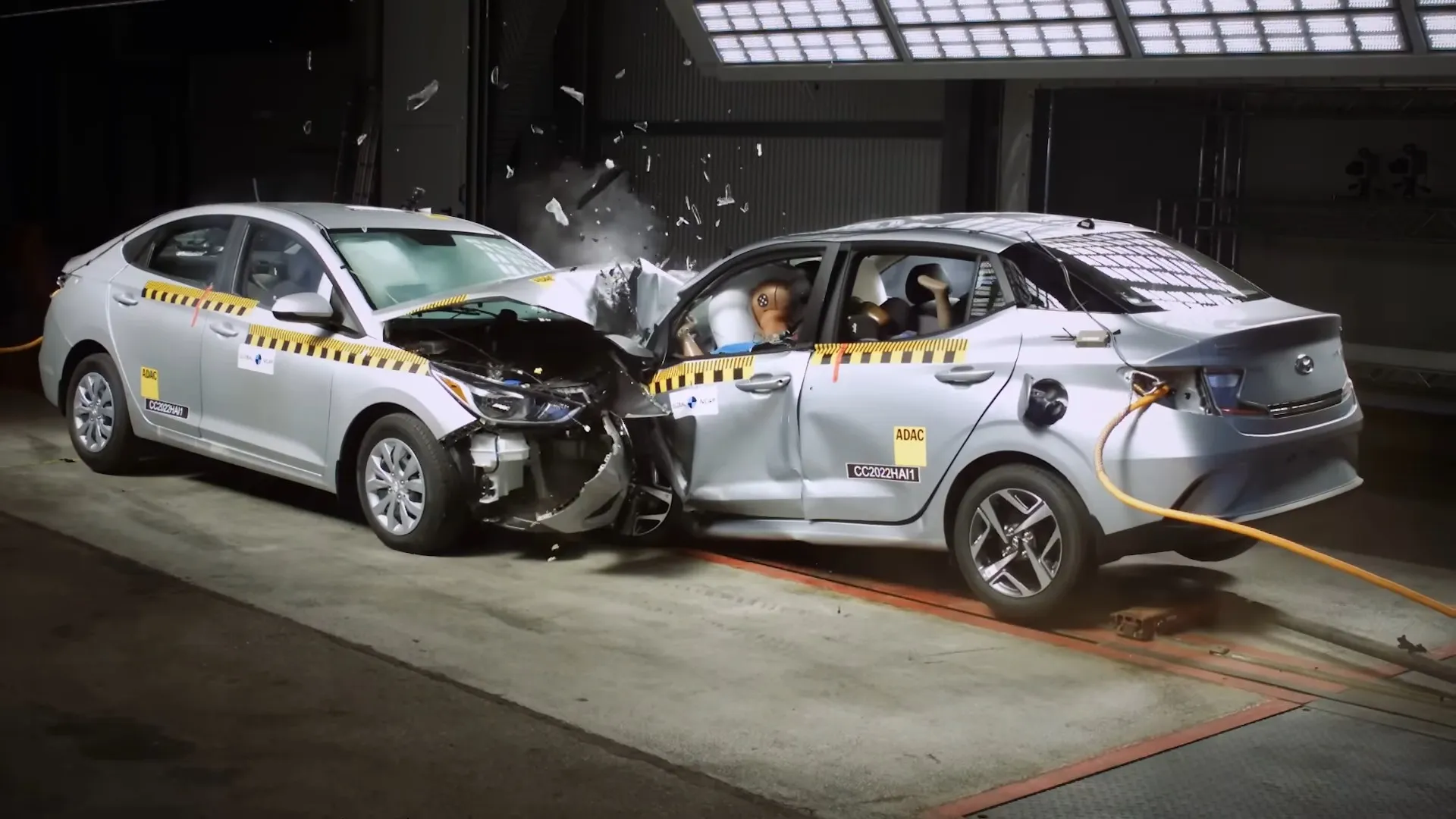ANSI Z26.1 Glazing Materials Impact Crash Testing
The ANSI/ASSE Z26.1 standard provides a comprehensive framework for testing glazing materials under impact crash conditions. This service is crucial in ensuring the safety and integrity of vehicle windows, windshields, and other glazed components. The tests are designed to simulate real-world scenarios where these materials might experience high-speed impacts, such as those caused by road debris or accidental collisions.
The standard specifies detailed procedures for conducting impact crash testing on various types of glazing materials, including laminated glass, tempered glass, and polycarbonate sheets. The tests aim to evaluate the performance of these materials under defined conditions, ensuring they meet safety requirements set forth in this ANSI/ASSE Z26.1 standard.
Our laboratory adheres strictly to the procedures outlined in ANSI Z26.1, which include selecting appropriate test specimens, determining impact parameters such as speed and angle, and analyzing the results based on predefined criteria. This ensures that all tests are conducted consistently across different clients and projects, maintaining high standards of accuracy and reliability.
The testing process involves several critical steps:
- Specimen preparation: Ensuring the glazing materials are representative of those used in actual vehicles.
- Impact parameter determination: Establishing conditions that mimic real-world impacts accurately.
- Data collection: Recording all relevant data points during and after the impact test.
- Analysis and reporting: Evaluating results against ANSI Z26.1 acceptance criteria and providing detailed reports to clients.
The ANSI Z26.1 standard is widely recognized for its rigorous approach to glazing materials testing, making it an essential tool in automotive safety compliance. By adhering strictly to this standard, we ensure that our test results are credible and can be relied upon by automakers, regulators, and other stakeholders.
Our expertise lies not only in the execution of these tests but also in providing insights into how these materials perform under various conditions. This knowledge is invaluable for R&D engineers looking to innovate or improve existing products, as well as quality managers responsible for ensuring product safety and compliance.
The results from our ANSI Z26.1 testing can influence critical decisions regarding material selection, design optimization, and regulatory compliance. For instance, the data obtained from these tests can help identify potential weaknesses in current designs and suggest improvements that enhance overall vehicle safety.
Quality and Reliability Assurance
The quality and reliability of test results are paramount to our service offering. Here at [Lab Name], we employ stringent quality control measures throughout the testing process, ensuring consistency and accuracy in every test performed. Our laboratory is equipped with state-of-the-art instrumentation capable of delivering precise measurements, which is essential for meeting ANSI Z26.1 standards.
- Calibration: All equipment used in our lab undergoes regular calibration to ensure it functions within specified tolerances.
- Data validation: Each set of test data is validated multiple times to confirm its accuracy before finalization.
- Reproducibility checks: We conduct additional tests on a subset of specimens to verify that results are reproducible and consistent across different sessions.
In addition to these internal controls, we also participate in proficiency testing programs organized by recognized bodies to further validate our capabilities. These programs provide an independent assessment of our performance against international standards.
Our commitment to quality extends beyond the technical aspects into customer satisfaction as well. We strive to deliver timely, accurate reports that meet or exceed client expectations. By maintaining high levels of reliability and accuracy, we build trust with our clients, ensuring they receive reliable information about their glazing materials' performance.
Customer Impact and Satisfaction
The ANSI Z26.1 glazing materials impact crash testing service has a direct positive impact on customer satisfaction within the automotive industry. By providing accurate and timely test results, we enable our clients to make informed decisions regarding material selection and design optimization.
Automakers rely heavily on these tests as part of their broader quality assurance programs aimed at ensuring product safety and compliance with relevant regulations. The insights gained from this testing can influence critical aspects of vehicle development, including window placement, glass thickness, and overall structural integrity.
For R&D engineers, our service offers valuable data that can guide innovation efforts towards safer and more efficient glazing solutions. By understanding how materials perform under crash conditions, they can develop new technologies that enhance passenger safety while complying with international standards like ANSI Z26.1.
The results of these tests also play a crucial role in ensuring regulatory compliance for automakers operating globally. Different regions have varying requirements regarding vehicle safety features; our service helps ensure that products meet all necessary criteria across jurisdictions, facilitating smoother market entry processes.
Moreover, the data obtained from this testing can inform procurement strategies by highlighting preferred suppliers who consistently deliver high-quality glazing materials. This information is particularly useful for quality managers seeking to optimize supply chain efficiency and reduce risks associated with substandard components.
Environmental and Sustainability Contributions
The ANSI Z26.1 glazing materials impact crash testing service also contributes positively to environmental sustainability efforts within the automotive industry. By ensuring that vehicle windows and windshields meet strict safety standards, we help reduce instances of accidents involving these components.
A safer driving experience translates into fewer fatalities and injuries on roads worldwide—a significant factor in promoting road safety and reducing healthcare costs associated with vehicular accidents. Safer vehicles contribute to the overall well-being of society by encouraging more responsible driving behaviors among consumers.
From an environmental perspective, the durability and reliability ensured by ANSI Z26.1 testing can lead to longer-lasting products that require fewer replacements over time. This reduces waste generation while promoting circular economy principles through extended product lifecycles. Additionally, advancements in glazing technology spurred by this testing contribute to more efficient energy usage in vehicles, further supporting sustainable practices.
Furthermore, the insights gained from these tests can drive innovations towards greener alternatives such as recycled content within glazing materials or improved manufacturing processes that minimize resource consumption and emissions. As automakers continue to prioritize sustainability initiatives globally, our service plays an important role in enabling them to achieve their environmental goals effectively.





